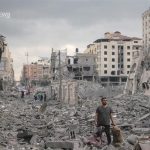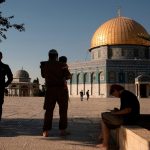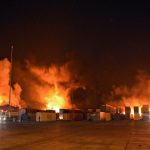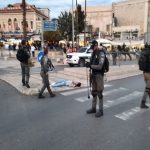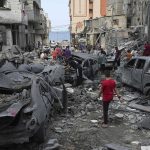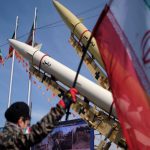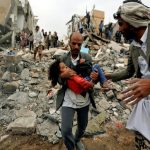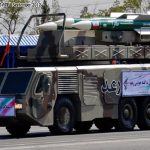The marchers gathered at the Martyrs’ Memorial in Kafr Qasim’s centre, where a minute of silence was observed to remember the victims, Anadolu News Agency reports.
On 29 October, 1956, Zionist troops killed 49 unarmed Palestinians, including women and children, in Kafr Qasim, an Arab village in northern Israel.
During the rally, marchers carried Palestinian flags, black banners and pictures of those killed in the massacre.
The march was attended by Arab leaders and representatives in Israel’s unicameral parliament, Knesset, as well as heads of Arab local councils.
Some of the banners read: “The 65th Anniversary of the Kafr Qasim massacre,” “We will not reconcile,” and “We will not forgive.”
On Wednesday, the Knesset, the unicameral legislature of Israel, rejected a Bill that would have officially acknowledged Israel’s full responsibility for the massacre.
Addressing the rally, Kafr Qasim Mayor, Adel Badir, said the “horrific” massacre” should unite all Arabs in Israel.
“We still face challenges, but we will continue to hold out hope in our hearts for a tomorrow when we will enjoy security, freedom and peace,” he added.
Muhammad Baraka, head of the Higher Follow-Up Committee for Arab Citizens of occupied territories, the highest representative body of the Arab public in Israel, said he spoke with Israeli President, Isaac Herzog, ahead of his visit to Kafr Qasim and urged him to acknowledge responsibility for the massacre.
“I hope he will stand here and announce that the State of Israel accepts responsibility for the massacre,” the mayor said.
“This massacre was not a defect in the Zionist project but, rather, was at its core. What was not completed in the Nakba of 1948 against the Palestinian people, they wanted to complete it in this region in 1956.”
The massacre was aimed at expelling the remaining Palestinians from their homeland, he said.
At the time of the massacre, Israel, along with Britain and France, was preparing to launch an attack on Egypt to regain western control of the Suez Canal.
Fearing a possible conflict with Jordan, the Israeli army decided to move up the start time of a curfew in the village without informing local residents, paving the way for the killings.
The border policemen involved in the shooting were tried, found guilty and sentenced to prison terms ranging from 8 to 17 years. However, all were released two years after the massacre, while the brigade commander was ordered to pay a fine of one piaster.


